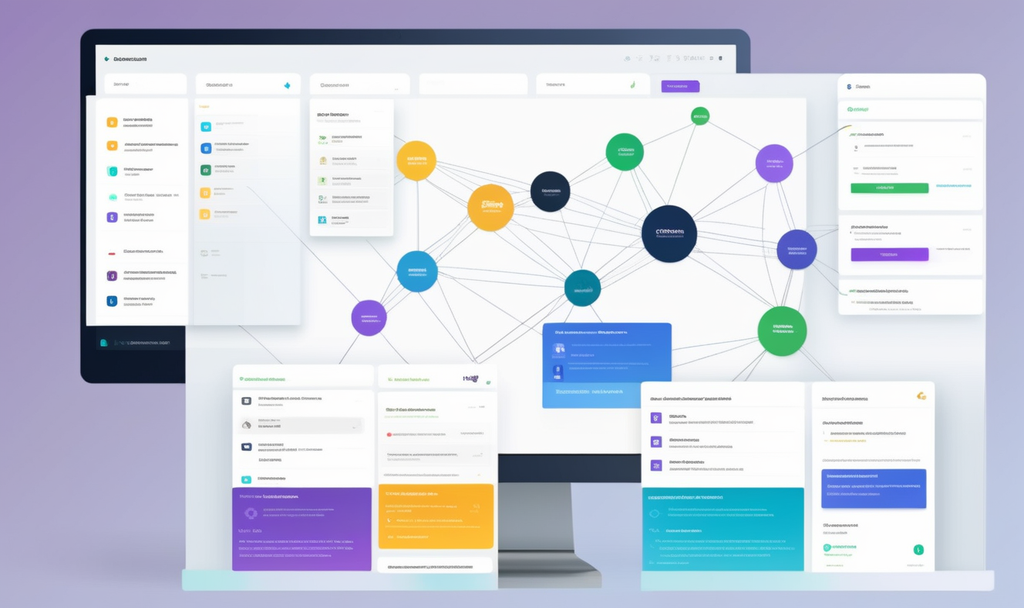Introduction:
In the rapidly evolving landscape of blockchain and cryptocurrency, the emergence of governance tokens has proven to be a transformative force in the realm of decentralized systems. These tokens, instrumental in facilitating decentralized governance, empower token holders to actively participate in pivotal decision-making processes. This blog explores the multifaceted role of governance tokens in decentralized systems, shedding light on their significance in driving community engagement, ensuring security, and shaping the trajectory of blockchain projects.
Decentralized Decision-Making:
At the heart of governance tokens lies their capacity to decentralize decision-making within blockchain ecosystems. Through the provision of voting rights, these tokens enable holders to exert influence on critical matters affecting the protocol or platform. This decentralized approach to decision-making not only distributes power among stakeholders but also fosters a more inclusive and democratic governance model.
The concept of on-chain governance, a hallmark of decentralized systems, underscores the seamless integration of decision-making processes directly on the blockchain. This on-chain governance mechanism, fueled by governance tokens, relies on smart contracts to automate and execute community-approved proposals. Such smart contracts play a pivotal role in streamlining governance processes and ensuring their transparent execution.
Strengthening Security and Trust:
A paramount feature of governance tokens is their contribution to the security and trustworthiness of decentralized systems. By decentralizing decision-making, these tokens mitigate the risks associated with central points of failure and censorship. The use of smart contracts, a technological marvel in this context, guarantees transparency, tamper resistance, and a trustless execution of governance processes.
It is through this trustless governance that users can place confidence in the fairness and equity of decision-making within the decentralized ecosystem. Governance tokens, as the backbone of these processes, instill a sense of security, knowing that the rules defined by smart contracts are not subject to manipulation or bias.
Incentivizing Active Participation:
Governance tokens go beyond mere voting rights; they actively incentivize community participation. Staking mechanisms, a common feature associated with governance tokens, allow users to stake their tokens as a sign of support for specific proposals. In return, participants may receive rewards, thereby encouraging a more active involvement in governance processes.
Governance mining, another innovative incentive structure, involves the distribution of governance tokens as rewards for those actively engaging in the decision-making aspects of the decentralized system. This not only acknowledges the valuable contributions of community members but also promotes a thriving and engaged ecosystem.
The Rise of Decentralized Autonomous Organizations (DAOs):
At the intersection of governance tokens and decentralized systems, one finds the flourishing concept of Decentralized Autonomous Organizations (DAOs). DAOs, essentially entities governed by code and community members, heavily rely on governance tokens to allocate voting power and influence within their structures.
In a DAO, governance tokens take center stage in determining the fate of proposals and the allocation of resources from the organization’s treasury. This dynamic form of decentralized governance enables token holders to actively shape the trajectory of the DAO, ensuring that decisions align with the collective will of the community.
Community Engagement and Democratic Governance:
Governance tokens play a pivotal role in empowering and engaging the community within decentralized systems. By providing a direct stake in the project’s evolution, these tokens foster a sense of ownership among token holders. This heightened sense of ownership contributes to a more engaged and committed community, as individuals feel a genuine connection to the project’s success.
Furthermore, governance tokens contribute to the establishment of a more democratic and inclusive governance model. The decentralized nature of decision-making ensures that a diverse range of voices and perspectives are considered. This democratization of governance aligns with the foundational principles of blockchain technology, emphasizing decentralization, transparency, and fairness.
If you have any question about this article, please contact us …
If you want, you can learn more about this through bitfinity.network.
In Conclusion:
In conclusion, the significance of governance tokens in decentralized systems cannot be overstated. These tokens serve as the linchpin for decentralized decision-making, ensuring security, and incentivizing active community participation. Through their role in DAOs, governance tokens enable a more democratic and engaged governance model, placing the power to shape the future of blockchain projects squarely in the hands of the community.
As we navigate the evolving landscape of decentralized systems, governance tokens stand as a testament to the transformative potential of blockchain technology. By empowering individuals, fostering trust, and democratizing governance, these tokens pave the way for a more inclusive and resilient future in the realm of decentralized systems.

